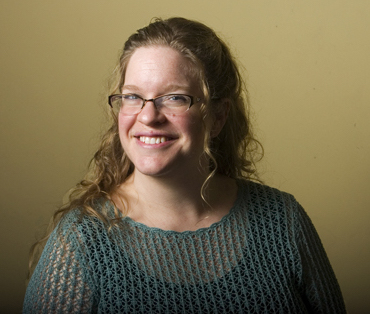“…And you shall explain to your son on that day, “It is because of what Adonai did for me when I went free from Egypt…” (Exodus 13:8).
From the midst of the original Exodus narrative, the text jumps suddenly forward in time, imagining you and me, future generations, retelling this sacred story in a very peculiar way – as a first person account. As the haggadah puts it, “Bhol dor vador hayav adam lirot et atzmo k’eelu hu yatza mimitzrayim – In each and every generation a person is obligated to see him/herself as if s/he personally went forth from Egypt.”
The story of the Exodus is in us, and we are in that story. But where exactly? Every year the seder asks us to imagine our answers.
Are you a midwife, commanded by an evil authority to commit an immoral act, finding a way to resist? Are you young Moses lashing out at injustice, going too far, knocking down a pawn without impacting structural evil? Are you the kind daughter of Pharaoh, drawing a miracle child out of the waters, using your privilege to protect the vulnerable? Are you standing on holy ground marveling at a burning bush, hearing a call to be more than you have been? Where are YOU in the story?
This year, I feel a certain dread as I enter that question. I fear we find ourselves in the lost generations between Joseph and Moses, traversing a global arc that seems to bend in the wrong direction.
People often say that the Egyptian enslavement must have happened gradually – a moral and social erosion too subtle to provoke outright revolution till it was too late (see, e.g., Ramban on Exodus1:10). I think of those Israelites in Egypt (as I think of Europeans in the ‘30s), and I long for some guidance about what they could have done to prevent disaster.
Torah is painfully vague. There is no record of their attempts or failures of resistance, no genealogy of mistakes made, lessons learned, wisdom of what they might have done differently. We know that they were silent for way too long. We know that they were fruitful. Little else is mentioned.
One noticeable karmic error hides buried in the final chapters of Genesis: Joseph’s role in building the institution of slavery as the neighboring peoples sold themselves to Egypt in exchange for grain. I imagine Joseph may have told himself he had no choice. By the standards of his time and place, the terms were probably generous. He must have convinced himself that his own people were safe – after all, he was chief advisor to Pharaoh and set them up with the choicest lands. But the institutions of enslavement and totalitarian rule proved to be stronger than the favoritism and exceptions one generation can procure.
Once Joseph died and a Pharaoh arose who chose not to remember him, the Children of Israel were enslaved, not only by the decrees of a tyrant but also by a robust infrastructure of slavery, which, ironically, Joseph had himself made stronger. What could have happened if Joseph had used his freedom and power not to enrich the Pharaoh and secure his own place in an unjust system but to restructure the systems of inequality themselves? What if Joseph had worked to dismantle slavery when he had the chance? How might Joseph have exercised his freedom in order to make all others free?
As I watch some of my fellow Jewish brothers and sisters support a regime that emboldens hate criminals, threatens the freedom of religion, and creates structures of surveillance and punishment designed to target minority groups, I think about Joseph and his inadvertent role in enslaving future generations of his people.
This year, as I lift up the freedoms I have so often taken for granted, they seem more fragile than ever before in my lifetime. Yet I know they may yet be strengthened if I exercise them vigorously. Now. And not just for me and my people — but on behalf of all peoples. As I imagine what that looks like, I hope that we may all find ourselves, not in the generation that sunk into a totalitarian nightmare, but instead, a part of the generation who lived to dance across the sea.
Rabbi Katie Mizrahi serves Or Shalom Jewish Community, San Francisco’s first Reconstructionist congregation.
Want to receive Torah from T’ruah in your inbox every week? Sign up here!

